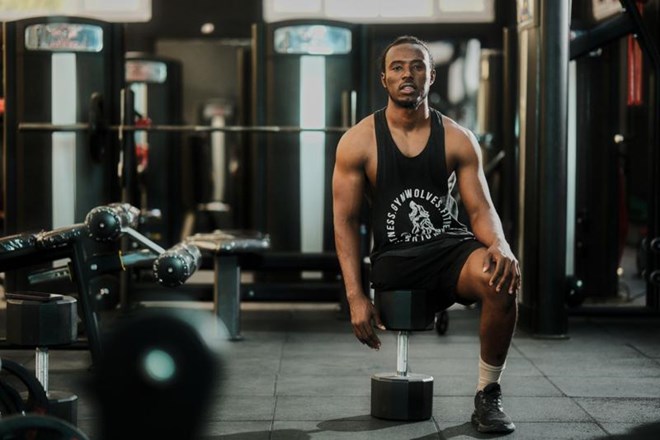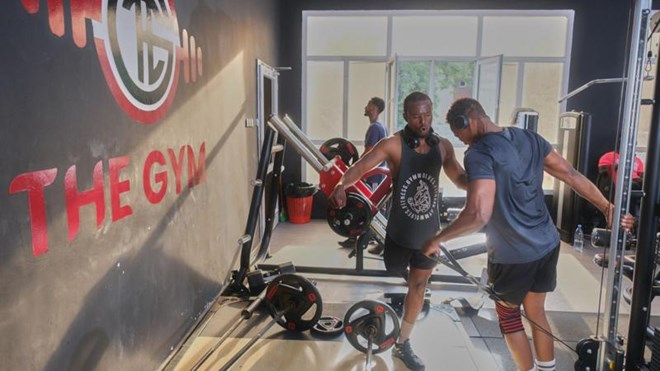
Wednesday April 17, 2024

Ali Abdullahi Mohamud, 33, lost a leg during an explosion in 2009
Mogadishu (HOL) — The dawn in Mogadishu brings a deceptive quiet, a lull pierced by the routine stirrings of a city that never quite sleeps. In these early hours, Ali Abdullahi Mohamud partakes in his morning prayers—an anchoring ritual in a life shaped by abrupt chaos.
He navigates his morning with a practiced tenacity, attaching his prosthetic leg with the kind of precise movements born from necessity. Each step out of his home is a silent testament to his resolve. The streets of Mogadishu, alive with the nascent bustle of daybreak, observe him with a familiar indifference.
Ali's destination, a nondescript yet significant local gym, is where his bodybuilding journey unfolds. The keyholder, familiar with his regular visits, greets him. Inside, the scent of sweat and iron heralds the start of transformation. Ali, shedding his rubber boots, begins his warm-up. Each jump on his remaining leg reverberates in the hollow space, a sound that symbolizes his determination and resilience.
This gym, a place of both literal and metaphorical reflection, stands as a rare sanctuary where Ali challenges not just his body but the very perceptions of disability in Somalia—a nation where the disabled are often relegated to the margins of visibility. Born in the tumult of 1991, Ali's life veered irreversibly in 2009 when an explosion stole his right leg and imposed a new reality of resilience.
In the wake of the disaster, Ali—once a beacon of youthful vigour in his community—found himself navigating a starkly altered existence. "The transition was palpable," he says, the words heavy with the weight of remembered runs and unrestrained freedom. Now, they call him "Ali Jis," a nickname that hints at an identity recalibrated by adversity.
Over time, Ali's relentless pursuit of bodybuilding has not merely reshaped his physique but has subtly rethreaded the narrative of disabilities in Mogadishu. Initially met with skepticism, his commitment has since cultivated a quiet respect, even admiration, among the gym's regulars. "Initially, my aim was to prove that people with disabilities can achieve anything," he reflects. As a fitness instructor, he has lived that proof, challenging and changing perceptions with each session, instilling a sense of hope and empowerment in those who train with him.
Yet, the memory of the explosion lingers, a shadow trailing the steps of his 'second leg.' His advocacy for the disabled is both a personal crusade and a communal invitation to redefine potential.
Shafi Abdulle Osman, inspired by Ali, observes, "His determination and discipline stood out. Everyone wanted to train with him." In the gym, Ali's spirit is unmistakable; outside, he might blend into the crowd, but here, he leads by example.
Ali's revelation came not from the ability to walk again but from discovering a more profound freedom once thought lost. "I felt liberated," he recalls, a sentiment that perhaps mirrors Somalia's own grappling with its fragmented identity and the slow march towards inclusivity and recognition, marked formally only as recently as 2018 with the National Disability Law.
Today, as Ali prepares to represent Somalia on international stages, his story is more than one of personal triumph. It is a reflection on the resilience of the human spirit against a backdrop of continued strife and the slow, often reluctant, acceptance of change within a society.
- With files from the BBC

Ali encourages one of his friends to visit the center, hoping to inspire him.